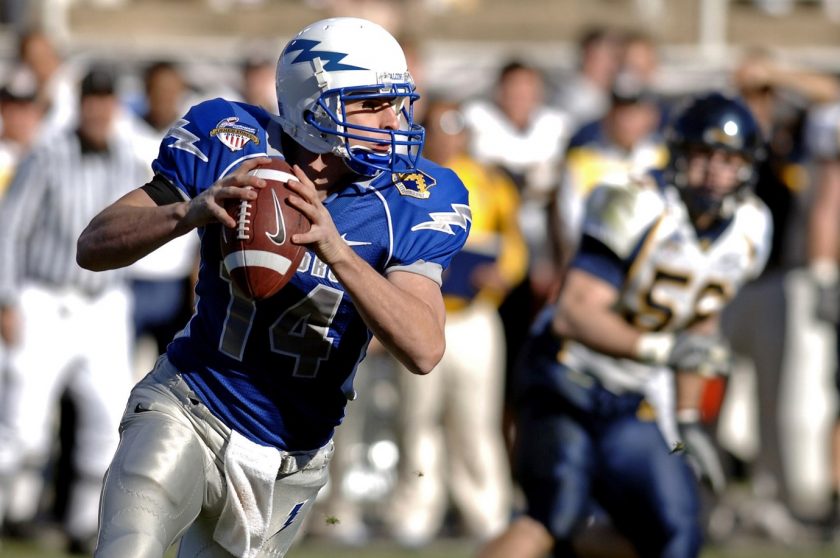
LEGAL UPDATE – THE US SPORTS BETTING DAM HAS BURST AND EVERYBODY IS GETTING WET
It has taken less than a year since the United States Supreme Court blew up the dam that confined state authorized sports betting in the United States (U.S.) to Nevada for state lawmakers to figuratively grab a kayak and a paddle and plunge into the rushing wagering water released by the Court’s decision to strike down the federal Professional and Amateur Sports Protection Act (PASPA).
Everyone in the U.S. is either already wet or probably soon will be.
In New Jersey, Mississippi, West Virginia, Delaware, Rhode Island, Pennsylvania, and New Mexico, state-authorized and regulated betting on sports is already available to the public. In addition, as of this writing, more than 120 additional bills that potentially will authorize betting on sports have been introduced in other jurisdictions.
At the federal/national level, the environment has not been disturbed. While Senators Charles Schumer and Orrin Hatch introduced a federal sports betting bill in December of 2018 and the U.S. Attorney General’s Office started off 2019 by announcing in its opinion the Wire Act of 1961 extends to all gambling, not just betting on sports—a change from the opinion it issued in 2011—neither of those developments has had anything remotely close to the impact that has resulted from the Supreme Court wiring PASPA with dynamite and depressing the plunger.
Of the new sports betting jurisdictions, the New Jersey market has enjoyed the most action due primarily to the mobile portion of the market. Since November of 2018, New Jersey sports book operators have handled between $320 million and $385 million per month. Recent projections estimate that New Jersey may handle approximately $4 billion in sports bets in 2019.
However, several New Jersey operators lost money on Super Bowl LIII as East Coast bettors strongly backed the favored New England Patriots against the Los Angeles Rams, and coach Bill Belichick’s Patriots came through with a hard-fought 13-3 victory. On the other hand, New Jersey operators reportedly held 24.4% of the approximately $750,000 wagered on the outcome of the Academy of Motion Picture Arts and Sciences’ awards, known as the “Oscars,” which were the first state authorized bets ever placed in the U.S. on the Oscars.
In state legislatures around the U.S., the National Basketball Association (NBA), Professional Golf Association Tour (PGA Tour), and Major League Baseball (MLB) continue to urge lawmakers to adjust the benefits of and burdens of sports betting in new authorizing legislation. To date, these sports controlling bodies have sought a 0.25% levy on bets on their games and matches and a requirement that sports book operators contract for official league data subject to “commercially reasonable” limits on the price charged for the data. To date, no state that has authorized betting on sports within its borders has included either of the sports controlling bodies’ desired benefits in an authorizing statute.
In essence, U.S. sports controlling bodies are seeking “arrangements for financial return to the sport on betting on the particular sport” similar to the return sports controlling bodies in Australia enjoy under the 2011 National Policy on Match-fixing in Sports (National Policy). But the legal theories, strategy, and tactics that the U.S. sports controlling bodies have employed to pursue their interest in a financial return from betting have been woefully deficient.
U.S. football coach Bill Parcells, a member of the Pro Football Hall of Fame once famously said, “You are what your record says you are.”
0-9 is the record of the U.S. sports controlling bodies in states that have embraced betting on sports since the U.S. Supreme Court burst the PASPA dam. (If anyone in U.S. politics awarded a “wooden spoon,” the NBA, PGA Tour, and MLB would have clinched it already.)
The advisors who have been “coaching” the U.S. sports controlling bodies have failed to design a fundamentally sound approach for their clients. To date, their approach suffers from two fatal flaws: (1) the approach has been based on intellectual property (IP) law principles, not principles of property law under the Just Compensation Clause of the U.S. Constitution, and (2) the approach has focused exclusively on “financial return” and completely ignored “arrangements.”
The U.S. sports controlling bodies have claimed that sports book operators are completely dependent on the controlling bodies’ IP and, therefore, the controlling bodies should receive a “royalty” in the form of a percentage of the betting handle directly from the legislature of each state. But U.S. sports controlling bodies do not have any intellectual property rights that relate to betting because these bodies did not invent betting on sports. Indeed, the bodies did not even invent the sports upon which bets are handled and, even they did, any IP that might have existed long ago expired in the U.S. where most IP is viable for only 20 years. Further, sports controlling bodies do not have any interest in the betting handle because the handle—the total amount bet—is financial capital supplied by the bettors, not human capital in the form of players, coaches, or officials supplied by the sports controlling bodies.
The U.S. sports controlling bodies are likely to have better success advancing their interests through the legislative process if they pivot and focus their advocacy on the “right to income” under the Just Compensation Clause and obtaining legislation similar to Australia’s National Policy that requires Australian sports book operators to make “arrangements” with Australian sports controlling bodies.
In the U.S., a “right to income,” when it exists, is embodied in the Just Compensation Clause of the U.S. Constitution and the U.S. Supreme Court has repeatedly held that—under the Just Compensation Clause—an owner of capital that creates income is also an owner of at least a share of the income pursuant to what is known as the “interest follows principal rule.” The “interest follows principal rule” is easily extendable to sports betting as the term “vigorish” means both income that is earned by sports book operator and interest on principal.
As a matter of fact, it is indisputable that U.S. sports controlling bodies’ human capital (i.e., players, coaches and officials deployed in competition) creates all sports book operators’ income as the controlling bodies’ games settle all the bets handled by all the sports book operators just as slot machines, dice, cards, and wheels settle bets for other gaming operators. In other words, it is indisputable that a sports book operator’s income follows a sports controlling body’s human capital in an economic and temporal sense just as interest follows principal.
At the federal level, the U.S. Congress has embedded the “interest follows principal rule” in the national Interstate Horse Racing Act (IHA). Under the IHA, tracks and horsemen who produce races that settle bets handled by off-track sports book operators clearly enjoy a right to a share of the income resulting from the handling and settlement of those bets. The IHA “adjusts the benefits and burdens” of betting where handling and settlement are not centralized at one location.
For example, in January the operator DraftKings was forced to suspend wagering on the Kentucky Derby at DraftKings’ Mississippi sports books when Churchill Downs, Inc. (CDI)—the owner of the track at which the Kentucky Derby is contested—objected to such wagering. In a press release, CDI stated: “Federal law requires the consent of the track on which the wager is placed as well as other necessary approvals. In this case, the wagers did not meet the requirements of Federal law, including obtaining our consent.’
If owners of equine capital and race track capital have a right to a share of income on bets handled by others at remote locations, how can the NBA, PGA Tour, MLB and other U.S. sports controlling bodies not enjoy the same right to income when their capital is used by sports book operators to settle bets the operators handle?
What is sauce of the goose is sauce for the gander.
Some U.S. sports controlling bodies have been able to reach contractual arrangements with a single U.S. sports book operator. For example, both the NBA and MLB have made a deal with MGM Resorts. Yet, despite their willingness to make such deals and the American Gaming Association’s position that these deals are vastly preferable to legislation that mandates legally baseless “royalty taxes” on handle for the benefit of sports controlling bodies, the controlling bodies still have not modified their position to seek authorizing legislation that requires a process pursuant to which the controlling bodies can reach deals with other sports book operators (in addition to MGM Resorts) instead of a raw cash subsidy based on handle.
When lawmakers adjust benefits and burdens by recognizing that owners of capital that settles bets possess a “right to income”—as Congress did in the IHA—such lawmakers essentially immunize the government from any potential future liability under the Just Compensation Clause. Thus, states, as well as sports controlling bodies, have a lot to gain by recognizing a controlling body’s “right to income.”
Time will tell if the U.S. sports controlling bodies will stop acting like plodding land-lubbers, modify their position, grab a kayak and a paddle, and adopt more nimble techniques to more effectively adapt to the rushing sports betting water that the Supreme Court released when it blew up the PASPA dam.
The view here is the controlling bodies eventually will do so.
After all, any kayaker you ask will tell you that it is much easier to paddle with a rushing current than it is to paddle against such a current.





